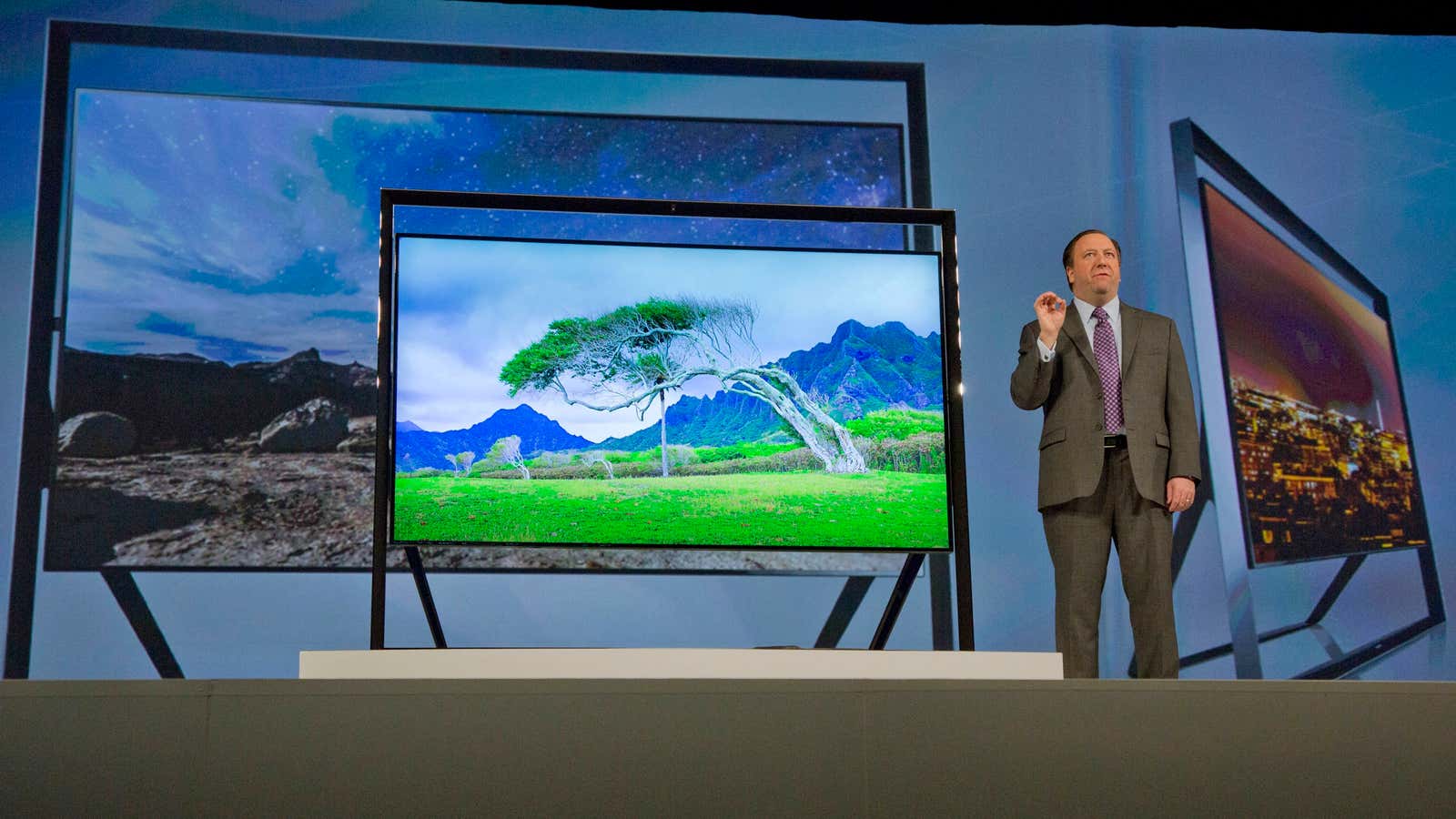Samsung has announced a fourth-quarter profit for 2012 double what it was the year before, capping a record year for the company. The Korean technology giant made 20 trillion won ($18.8 billion) in profits in 2012 and 8.8 trillion won ($8.3 billion) in the fourth quarter alone. Revenue was boosted in part by record sales for Samsung’s high-end smart phones. The company launched 37 models in 2012, and its flagship, the Galaxy S III, sold 30 million units.
Analysts from Nomura and Macquarie Securities are projecting that Samsung’s stock will rise 40%-50% in 2013, on the back of a 35% increase in smartphone sales, to a mind-boggling 290 million units. Apple, by contrast, is expected to sell 180 million.
Samsung’s move into mobile devices seems especially savvy given stagnating sales of other consumer-electronics goods, such as televisions, where it faces stiff competition from cheaper Chinese rivals. Giants in mainland China like Huawei and Hisense, which made its stateside debut at this year’s Consumer Electronics Show, are eager to take market share from Samsung, moving up from contract manufacturing to high-end branded products—which is exactly how Samsung became so successful.
However, it’s not all about mobile. Samsung is also projecting that it will become the biggest supplier of home appliances (like refrigerators and washing machines) by 2015.
Despite all this, Samsung is still not the most profitable technology company on Earth. Apple will retain that title through 2013, out-earning Samsung despite selling fewer phones and making none of the other products in which Samsung dominates, like chips and displays.
That difference in profitability reflects, in part, that fact that Samsung started out making parts and got into branded goods only later. The company’s diverse portfolio buffers it against the success or failure of any one product, but it also means that Samsung competes in increasingly commoditized products with manufacturers throughout mainland China and Taiwan.
They might out-compete it eventually. But for now Samsung can boast of being the largest vertically integrated technology company on the planet. It enjoys both healthy margins for its high-end products and huge volumes for its basic goods. Success across this spectrum should bolster the company’s fortunes through 2013, at least.




